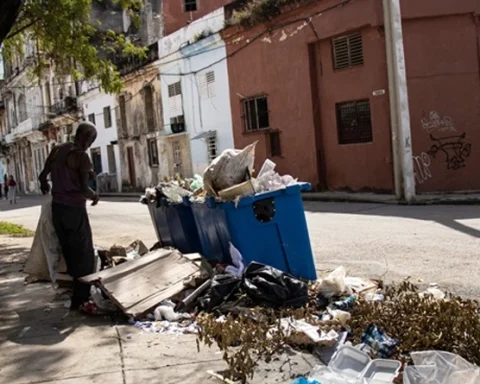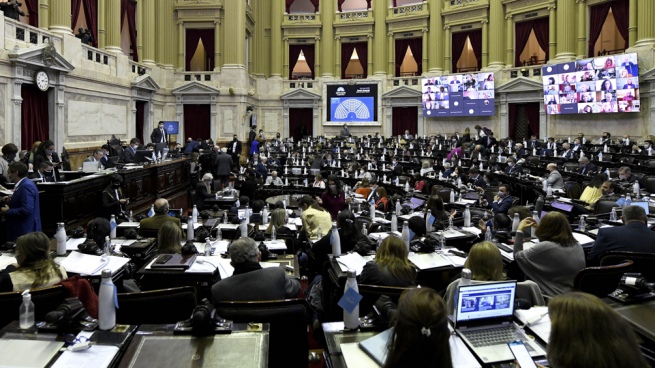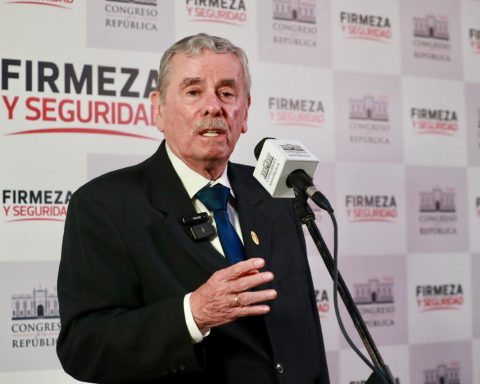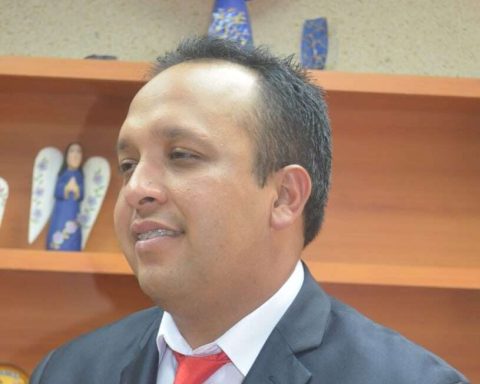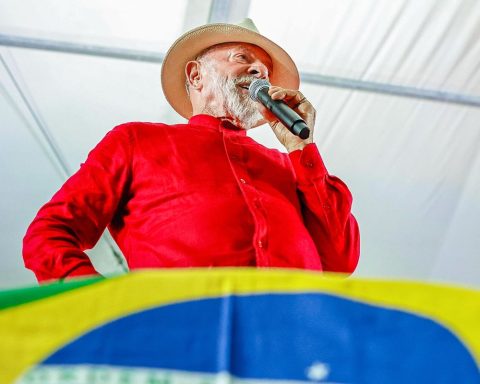“We celebrate the 120th anniversary of our institution just 48 hours from the Day of Cuban Culture (October 20, in homage to the public premiere of the National Anthem in 1868), and it represents the reflection of a random effort in time because the foundation it is nothing more than a date taken, he said in an exclusive interview with Cuba Internacional.
“It is the milestone marked by the appointment that the North American military governor signed in 1901 in favor of Domingo Figarola Caneda as director of the National Library of occupied Cuba, which did not exist,” said the young playwright, critic and professor at the Instituto Superior de Art.
“With justice that date is assumed as a founding event,” he added, “because Figarola Canedo, a warrior and passionate like all librarians, took his personal funds to the Castillo de la Fuerza, a property assigned to him, and that action constituted the initial act” .
Valiño observed that, despite all the great dramas of the republican insidiousness with the center that was not yet called José Martí, something very important intrinsic to its function was accomplished: the development of the bibliographic arsenal with great awareness of preserving the treasures of the nation.
“Gradually, he and those who came afterwards accumulated an impressive amount of volumes, documents and other types of material, which is part of the essential fulfillment of our task: the preservation of the nation’s documentary and bibliographic funds, being attentive both to what that we have as a natural renewal for the polygraphic production in particular of books and the rest of the documents printed in any format, that is something that has been accomplished throughout history despite various difficulties, which it would take a long time to enumerate ”.
He added that, as an essential objective, this idea has a lot to do with the importance of the institution at the present time.
“Here a wealth is kept that is not elsewhere in the sense that other organizations have a singular heritage of great importance, however, in those institutions and in this one there is a content far from the clichés about Cuba, true, it is what we are and have been throughout time, and it is the refuge of a knowledge without which there are no footholds, there is no historiographic interpretation or identity fixation, and there could be no positioning of those great objectives of the country without the reverberation of that accumulated knowledge, ”said Valiño.
The intellectual ruled that, in such a way, the Library not because it bears the names of Nacional de Cuba and José Martí, but because of that pristine objective of treasuring, preserving and disseminating it protects our sovereignty, identity, culture, independence and justice.
A GREAT CULTURAL CENTER
By clarifying that it is not a personal discovery, Valiño emphasizes that he feels the institution as the great work of his natural mission, and also as a great cultural center.
“It is already ex officio for all that it treasures, but it is not enough to possess it, it also needs to be disseminated, and this ceiling of practically all knowledge has that right and that possibility.
very beautiful to disseminate the culture of the country and universal not only within the arts and literature, but in the truest and broadest possible sense.
In this regard, it ratified the will to promote publications, organize meetings, face-to-face and virtual, and exhibitions to meet the objectives described above.
He stressed that this has been part of the purpose of the celebration of the 120th anniversary with the publication of the book Ese sol del mundo moral, by Cintio Vitier on the occasion of the centenary of his birth, in addition to the commemoration of the 60th anniversary of the speech of the historical leader of the Revolution, Fidel Castro, known as Words to Intellectuals, and of the 35 years of creative existence of the Hermanos Saíz Association, artistic and literary vanguard of the
Cuban youth.
Exhibitions with a sample of volumes by Vitier and the plastic artist Pedro de Oraá, the reopening of the Library’s theater room with the name of the late revolutionary hero and brilliant thinker Armando Hart, as well as the rescue of the Eliseo Diego Children’s Room , created precisely by this famous Cuban poet, contributed content to the festivities for the anniversary.
IN THE FACE OF THE US CULTURAL WAR
Valiño emphasized the tightening of the economic, commercial and financial blockade of the United States against his homeland with more than 240 additional reprisals introduced by President Donald Trump and maintained by his successor, Joseph Biden, amid the Covid-19 pandemic , which generated serious damages in the last biennium.
“It is no coincidence that, although the attacks from Washington have always been there, today the main territory of that aggression is in culture, both artistic and literary and against everything that points to the identity and values of significance as Cubans of the inhabitants. of this island ”, he pointed out.
He insisted that it is a cultural war in its entirety and it is intended to demolish and devalue its own paradigms in the search for a victory in that symbolic conflict against the Cubans.
He believed that, if this degradation occurs at the level of identity, of belief in one’s own historical and present values, including family values, the other party gains ground above any national symbol.
“In this context – he stated as a primary task – the Library has to support a very strong building of those values in dispute, in a clear counteroffensive”.
In this regard, he confirmed that, like other institutions inside and outside of Cuba, José Martí moved towards the virtual world, to work in networks in which events, meanings of the whole culture are highlighted daily; “It seems that it does not have a political bias, and
This is often the case on a primary level, but with regard to the protection of our values, everything points to a defense of the “cop” of us Cubans, with the Internet as a landing beach ”.
As part of this “creative resistance”, the institution increased services in support of the production of books, documentaries and fiction films, television programs and projects of all kinds aimed at the “intelligent defense of the homeland” and the true
knowledge of history, while continuing to “fight” on social networks.
“The book That Sun of the Moral World is a symbol of this battle; We did not choose it for pleasure, because we knew that it was important to put it back in the hands of the Cuban reader, particularly young people and adolescents, and we did not imagine that the moment of its departure
It would be so ideal for a work of defense and combat of the homeland. In this way we pay tribute to Cintio Vitier on his centenary ”.
He confessed to feeling partial satisfaction because in the two-year period that elapsed, the institution managed to locate itself in the frontal zone of the cultural dispute with a more direct participation, more evident and known by the general population, despite not being fully operational due to the pandemic closure; “This gain from the Library’s voice is part of our objectives,” he described.
FACING THE NEW NORMALITY
To be completely frank, the cultural leader said that the primary aspect of the institution, the provision of services, is a challenge in the beginning of the new normal of the country after long months of interruption, which is why it guides facing the reopening not only as an opportunity but also as a challenge that demands efforts from the collective.
“It is not a rhetorical expression, we have been preparing in a real way, and we intend that these benefits find a new condition also in virtuality, which we had lost for some time,” he warned.
He indicated that the ambition to promote culture should bear fruit as a cedar in propitious land in the theater, completely remodeled, the gallery and the very diverse spaces in which the encounters with users and regular readers, as well as their quality, will increase.
minted with the distinctive signature of the José Martí National Library.
Great expectations are generated by the recent inauguration of a Children’s and Youth Room, which has disappeared for 12 years, which bears the name of Eliseo Diego, its founder, animator and inspirer with a work methodology that he created at the beginning of the Revolution.
“This completely new investment has a horizon closer to the children and adolescents of today, where books coexist with digital educational games and the incentive of a confluence towards knowledge by all possible means”, said Valiño as if he were caressing a dream.
He described this idea of the Library as strategic to precisely contribute to a better training of the new generations, who from the earliest ages will know the importance of having these instruments as a bedside tool in daily life.
The also critic and professor of the Higher Institute of Art evoked Words to the Intellectuals, whose headquarters was precisely the National Library sixty years ago and outlined the course of how the Revolution should work in the cultural field; as well as the campaign
literacy, which also commemorates its sixtieth anniversary in 2021, and “without which Cubans would not be who we are, despite any deterioration due to time and the most recent deficiencies.”
He insisted that such events contributed a cultural reverberation to Cuba and its citizens and a deep general knowledge of the realities, which is admired throughout the world, although some Cubans are not aware of how much knowledge they possess in different ways.
areas.
Valiño praised an idea that was put into practice on the occasion of the centenary of Cintio Vitier, consisting of identifying with his name and that of his wife and also an excellent poet, Fina García Marruz, the cubicle where they worked for a long time, “the room inside the house “, as expressed.
“As many researchers of Cuban culture invested years of their lives in the Library,” confirmed the director, “we will open those renowned spaces with their identification, as well as the chairs in the Cuban Room where so many scholars gave us indelible documents of their intellectual creation. ”.
Valiño reaffirmed that this will be the case in all areas of the José Martí National Library, in homage to those who played a prominent role here over 120 years, from the times
foundational to the most current.
“Memory honors us, without it we are not complete,” concluded the young intellectual in reference to the strategic line of the institution he heads.
mem / jpm / nd / ecm
(Taken from Cuba Internacional 478).
